Search
Did you mean: Delos?
Summary 
Loading AI-generated summary based on World History Encyclopedia articles ...
Search Results
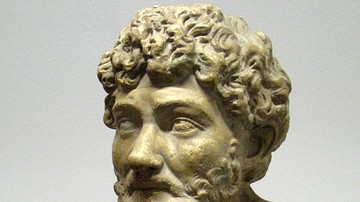
Image
Aesop
Aesop (c. 620-564 BCE) was an Ancient Greek fabulist or story teller credited with a number of fables now collectively known as Aesop's Fables. Although his existence remains uncertain and (if they ever existed) no writings by him survive...

Article
Aesop's Fables
Written by a former Greek slave, in the late to mid-6th century BCE, Aesop's Fables are the world's best known collection of morality tales. The fables, numbering 725, were originally told from person-to-person as much for entertainment purposes...

Video
An Introduction to Aesop's Fables
A fable is a short story that usually includes animals that act like people as the main characters and conveys a moral or a lesson to be learnt. Aesop’s Fables (which come to a total of 725, although modern editions often only include between...

Definition
Ancient Greek Literature
Greek literature has influenced not only its Roman neighbors to the west but also countless generations across the European continent. Greek writers are responsible for the introduction of such genres as poetry, tragedy, comedy, and western...
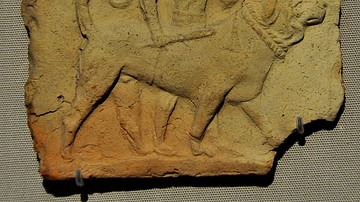
Article
Dogs & Their Collars in Ancient Mesopotamia
Among the many contributions to world culture credited to Mesopotamia is an object so familiar to people in the modern world that few pause to consider its origin: the dog collar. Throughout the ancient world, from China to Rome, dogs are...
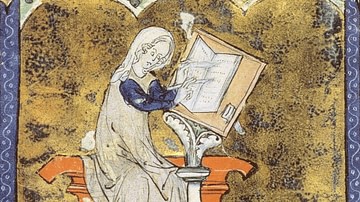
Definition
Marie de France
Marie de France (wrote c. 1160-1215 CE) was a multilingual poet and translator, the first female poet of France, and a highly influential literary voice of 12th-century CE Europe. She is credited with establishing the literary genre of chivalric...

Definition
Medieval Folklore
Medieval folklore is a body of work, originally transmitted orally, which was composed between the 5th and 15th centuries in Europe. Although folktales are a common attribute of every civilization, and such stories were being told by cultures...
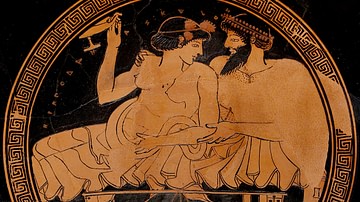
Definition
Hetaira
A hetaira (pl. hetairai) was an educated female prostitute in ancient Greece and a common participant in symposia or drinking parties in private homes. Sometimes referred to in English as a courtesan, the Greek term hetaira was a euphemism...
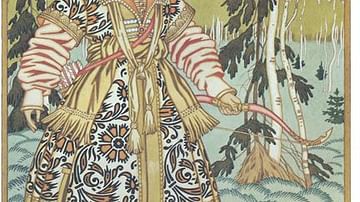
Article
The Frog Princess
The Frog Princess is a Slavic folktale focusing on the importance of recognizing someone’s inner beauty, regardless of their outward appearance, as well as the possibility of redemption after failure. The tale has many variants and appears...
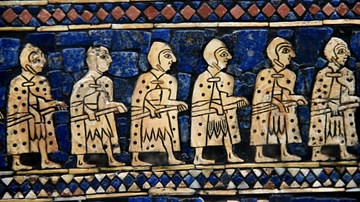
Definition
Sumerians
The Sumerians were the people of southern Mesopotamia whose civilization flourished between c. 4100-1750 BCE. Their name comes from the region which is frequently – and incorrectly – referred to as a “country”. Sumer was never a cohesive...